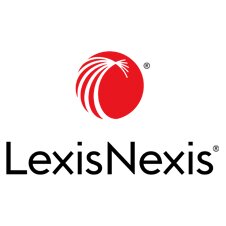LexisNexis generative AI survey: how lawyers are spending the extra time saved using AI
AI is freeing up lawyers’ time, but how that time is used reveals a lot about the future of legal work.
Generative AI is accelerating routine tasks like research, drafting and admin. But the question remains: are lawyers using those extra hours to improve productivity, win more business, or strike a healthier work-life balance? According to LexisNexis research, the answers vary by firm size, practice type, and career stage.
AI is giving lawyers back valuable hours
AI adoption is rising fast across the UK legal sector. The August 2025 LexisNexis survey found 56% of private practice lawyers using AI said they dedicate their saved time to attempting to increase their chargeable work, while 53% said they now enjoy a better work-life balance. This suggests AI is not only reshaping firm economics but also lawyers’ day-to-day lives.
Candice Donnelly, formerly Director of Legal at Skyscanner, has seen this shift first-hand: “Over the past 12 months, we have seen a real increase in AI tools that can handle these tasks with speed and consistency, enabling teams to focus on more strategic advisory work and complex problem-solving.”
Billables vs balance: Different firms, different priorities
The way firms use AI-driven time savings varies:
- Large firms lean towards commercial gains, with 61% of lawyers using time saved to increase billables.
- Small firms reverse the pattern, with 59% prioritising better work-life balance.
- In-house teams are more likely to focus on balance (52%) and personal or team development.
Interestingly, associates across firm sizes lean towards increasing chargeable work, with 60% saying they use AI-enabled time for this purpose.Find out how Lexis+ AI works – and if it could work for your business
From admin to advisory: The changing role of lawyers
By reducing administrative burden, AI allows lawyers to dedicate more energy to strategic and client-facing work. Bhavisa Patel, Director of Legal Technology at Eversheds Sutherland, notes: “Without the administrative burden, lawyers can focus on how to turn a good client relationship into a deep strategic partnership, which in turn will lead to higher quality outputs and happier clients.”
This isn’t just about efficiency. It’s about transformation. As more tasks become automated, the lawyer’s role shifts from executor to advisor.
Why work-life balance is gaining traction
While firms are keen to measure commercial gains, many lawyers are equally interested in wellbeing. More than half of AI-enabled private practice lawyers reported enjoying a better balance between work and life.
For a profession known for high workloads and burnout risk, this signals an important cultural shift. As Patel points out, a better balance not only benefits lawyers but also improves client outcomes by fostering more sustainable working practices.
AI is reshaping priorities, not just processes
AI doesn’t just save time; it reshapes how that time is valued. Some lawyers use it to boost billables, others to improve balance, and many to strengthen client relationships. The common thread is that AI is giving the profession the chance to redefine what success looks like.
The future of law may not be measured only in hours billed, but in value delivered and wellbeing preserved.






